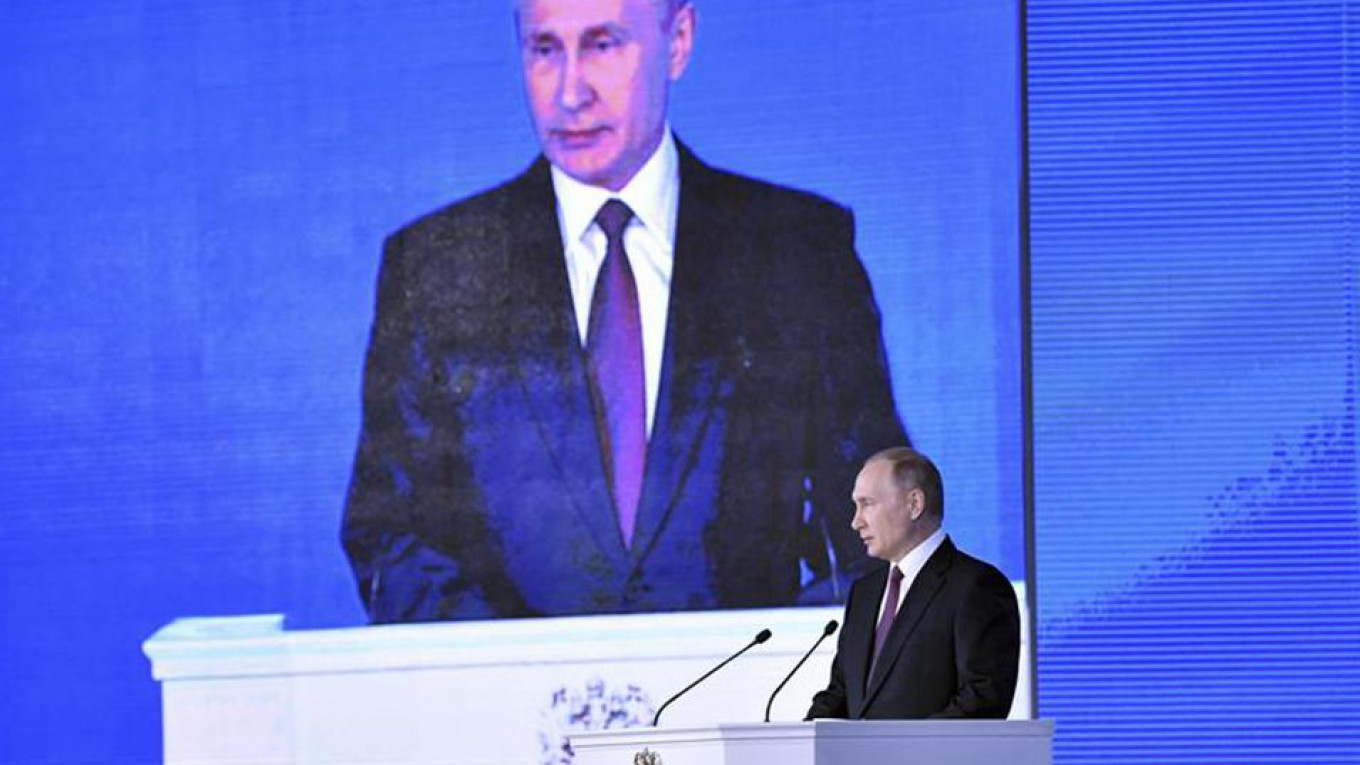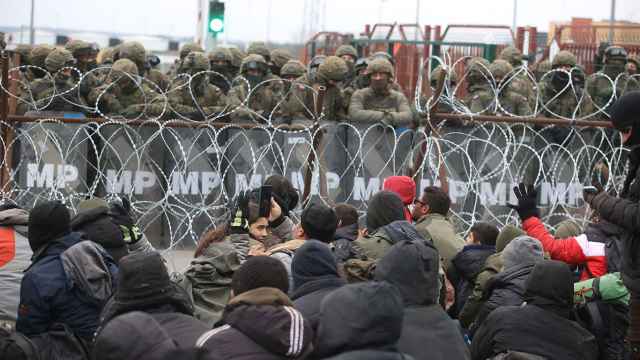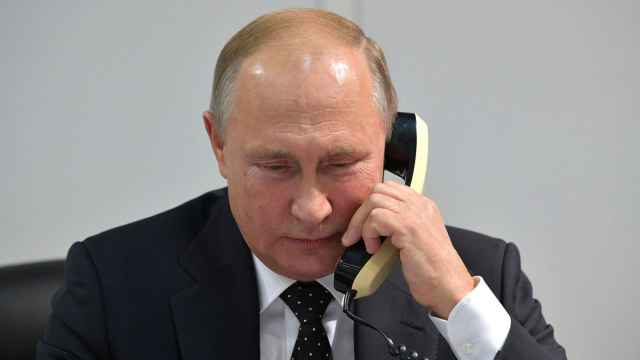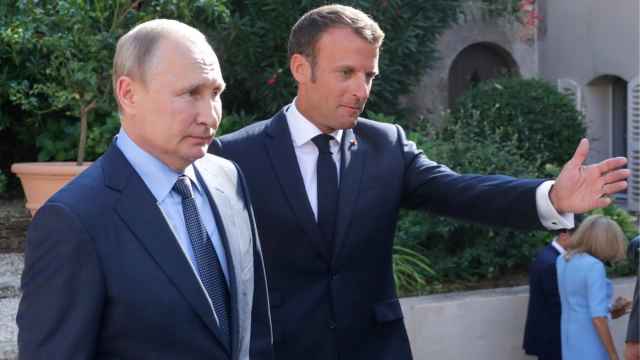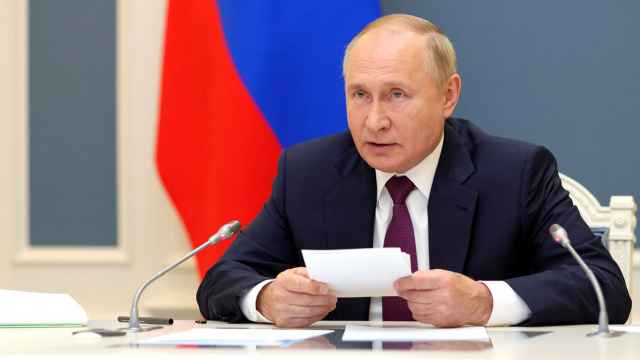The presentation of weapons — some known, some new — took up more than 30 percent of Russian president Vladimir Putin’s state of the nation address last week.
Putin, who was not particularly engaged during the economic and social parts of his speech, visibly lit up when he got to torpedoes and rockets. For about 45 minutes out of a two-hour-long address Putin showed videos and animation and stressed Russia’s new missiles’ ability to penetrate U.S. missile defenses.
Who was the target of the "nuclear message," as the address has been dubbed on some pro-Kremlin forums? Opinions about the speech ranged from awestruck praise on state-run channels to puzzled concern or jokes on independent opinion platforms and social media.
"They’ve just shown Russia’s response to Elon Musk, with animation!" political scientist Ekaterina Schulmann quipped on Facebook, referring to the billionaire founder and CEO of SpaceX whose recent exploits, such as sending a Tesla car into space, have been widely discussed in Russia. "So where are we? Young Brezhnev loved tech stuff too," wrote Kirill Rogov, referring to the Communist Party boss Leonid Brezhnev, who ruled the Soviet Union between 1964 and 1982.
Interestingly, both state-run news media and independent outlets agreed that the speech was mainly targeted at Washington.
"Did they wake you up, Trump?" Olga Skabeeva, the co-anchor of a Rossia-1 talk show wrote on Telegram. The fiercely pro-Kremlin current affairs show Vesti Nedeli made a bewildering comparison of U.S. missile defense systems to the Maginot Line, a line of defenses built by the French in the 1930s to deter Nazi Germany’s attack.
The Maginot Line was famously rendered useless by the German army, which bypassed it and occupied France in 1940. I watched the program in mounting disbelief: wouldn’t such a comparison, made on state-run television, lead viewers to start drawing analogies between Russia and Nazi Germany?
Other state-owned and state-run television channels spoke of the purported trepidation and anxiety that Putin’s presentation should have visited on Washington. But the very morning Trump was expected to react to Putin’s address he was busy unleashing his trade war on Europe.
"The presentation was aimed at Western capitals, mainly Washington, with which Putin has been involved in an old and threadbare fight over how American leaders have failed to appreciate well-meaning Russia," Vladimir Frolov wrote in a Friday op-ed for Republic, an independent online magazine.
Among other things in the speech "there was anger directed at the Americans for [the defeat of the private military company] Wagner," Gleb Pavlovsky, a former adviser to the Kremlin who is now among Putin’s critics, opined, alluding to a story about a firefight in Syria on Feb. 7 in which dozens of Russian privately contracted fighters reportedly died.
Ekaterina Schulmann said in a comment that she thought Putin was talking past his immediate listeners and seeking to "strengthen Russia’s position in imaginary negotiations [with the world’s strongest powers] to divide up the world.... We [Russia] want them to take us seriously and show us respect.... Maybe, in the kind of world our government elites inhabit, there is a real future for precision nuclear strikes."
Schulmann pointed out that just one day before Putin’s address, Russian foreign minister Sergey Lavrov had discussed what he called a nonstrategic lack of nuclear parity between Russia and Europe.
Leonid Bershidsky, writing for Bloomberg View, also thought Putin’s message was "aimed squarely at the U.S., which, in its recent doctrinal documents, has revived the idea of superpower competition."
As opposed to Russian commentators, many foreign observers thought Putin was talking to his Russian audiences. "This speech doubles as his election address, just a week and a half before the polls," Mark Galeotti, a senior researcher at the Institute of International Relations in Prague, reminded his readers. "He needs to persuade [the nation] that, in Trotsky’s possibly apocryphal warning, although they may not be interested in war, war is interested in them."
If Putin was selling war to his home audiences, he was working against the tide. As a result of widespread fatigue from the wars in Ukraine and Syria, anti-war attitudes have been settling in recently. Even among frequent television watchers the group of peacefully-minded Russians has started to prevail over the group who support Russia’s war efforts abroad.
The fact that many Russians are still unconvinced is evidence that the war mentality is unnatural and needs to be pounded into people’s heads with the full strength of the state-run media machine for years and years. But war mentality is politically profitable. It makes for a simpler worldview. It makes citizens look for a savior, not for a politician who can make mundane governance work.
This is not the first time that Putin has painted a picture of Russia encircled by hostile powers eager to exert their adverse influence on unsuspecting Russian citizens. Foreign influence is, according to Putin, the only force that can cause the Russian electorate to vote him down.
In January, Putin said that opposition leader Alexei Navalny was Washington’s pick for the Russian presidency. Preventing Navalny from running in the upcoming election was presented by Putin as an act of forestalling foreign meddling in Russia’s electoral process.
Some abstract negotiations with the world powers would be an unlikely outcome of Putin’s address. He did not even mention an actual subject of such negotiations.
But one likely kind of response has already materialized. In an eerie coincidence with Moscow’s saber rattling, China said Monday its defense budget will rise 8.1 percent and reach $173 billion in 2018.
Maxim Trudolyubov is a senior fellow with the Kennan Institute, where this article was originally published. The views and opinions expressed in opinion pieces do not necessarily reflect the position of The Moscow Times.



